- Daily & Weekly newsletters
- Buy & download The Bulletin
- Comment on our articles
All you need is love: Expat couples share their stories
Celine: Head of European office of Care International, from France
Solos: Project advisor in the EU institutions, from Cyprus
Together 19 years

Celine:
Many of our friends are mixed nationality couples – this has helped us build close friendships and learn about other cultures. At the beginning we didn’t socialise much with Belgian couples but that changed when our children started going to local schools. Both of us are from southern/Mediterranean, family-oriented cultures, so we appreciate food, fun and sun. We have some very different cultural and intellectual references, but we are both open to learning – and we laugh when things don’t translate well!
Solos:
We’ve had lots of misunderstandings – one of our first arguments was over whether Béchamel is a cream or a sauce! And before meeting Celine’s family, I had a serious training course about cutting cheese… But we deal with these things with patience, trust and a sense of compromise on issues that aren’t really essential. The cosmopolitan nature of Brussels allows us to find elements from our own cultures but is also a compromise workwise.
Laurence: Trainer and coach, French
Adam: Independent IT consultant, British (and now French and Belgian)
Together 19 years
Laurence:
Adam lived in France from the age of six, then in Belgium from 11. So the difficulties came from my side, with no English at all in my family, which stops conversations from taking off. But our nationalities work very well together. We come from two old nations with ‘important’ histories and traditions, though they’re very different ones. Adam’s parents live in Brussels and we’ll stay here as long as our children can enjoy their grandparents. Brussels is our home now and I struggle to think of another place we would enjoy as much.
Adam:
We were the forerunners of internet dating. We met by pure coincidence via an American website while I was in Brussels and Laurence in Paris, in November 1998. After a month we decided to meet in person. It was the day after Boxing Day, in Brussels. Each of our nationalities opens a window to friends of that nationality, on top of which we have friends through our children’s school – which is very international even though it’s a Belgian school.
Jess: Lobbyist, from Ireland
Karel: Systems and process manager, from Canada with Dutch parents
Together 18 months
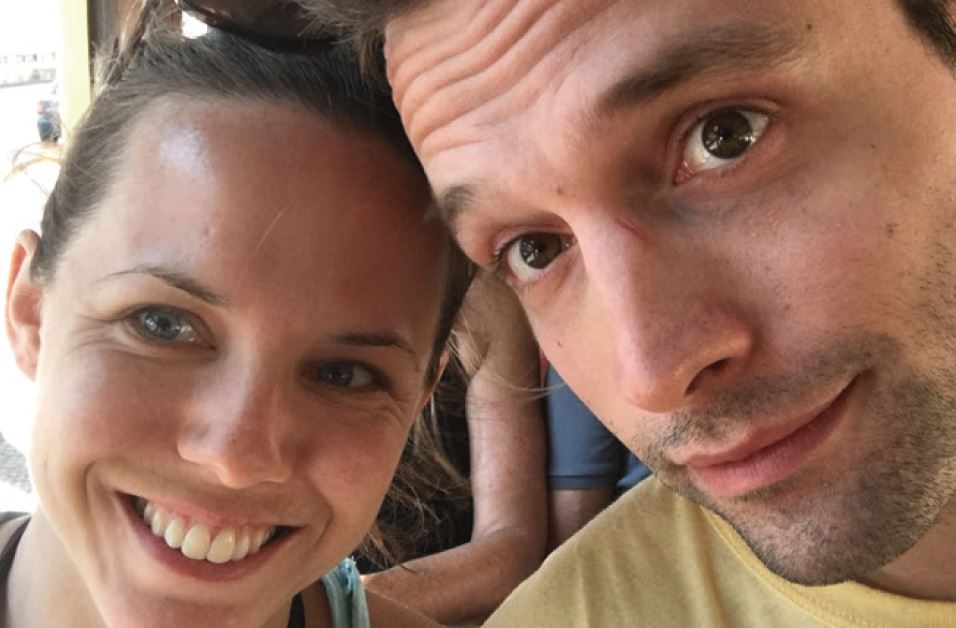
Jess:
We met through friends two years ago and started going out six months later. We don’t have many cultural misunderstandings, though Karel would like it if I didn’t shout at him from other rooms. It’s something we do at home in Ireland – but I think that’s a family thing and not an Irish thing! I’ve also made great friends through Karel. I would love to live somewhere else, but for now Brussels works and I find living in Brussels very easy.
Karel:
The good thing about being in a mixed nationality couple is you get to experience and learn about another culture first hand, including the joys of my mother-in-law’s brown bread! We get along very well – sometimes we have misunderstandings but generally as we’re both anglophone they’re not too prominent. Brussels suits our immediate goals, but it’s not necessarily a long-term location. I would definitely like to see what other opportunities are out there.
Andrea: Business operations manager at Cisco, from Hungary
Abbey: Works at food company Culinor, from Nigeria
Together 10 years
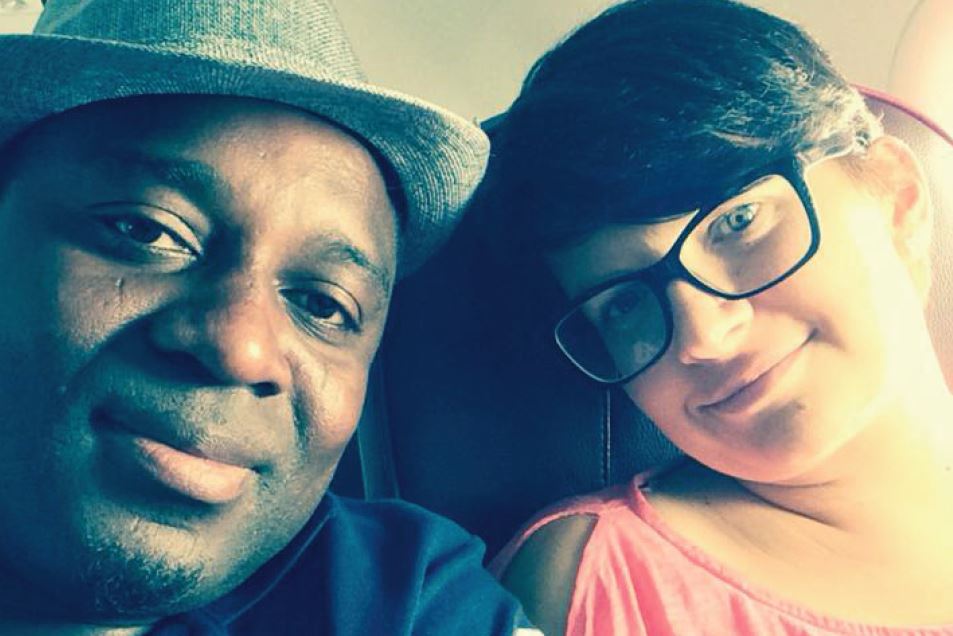
Andrea:
The biggest challenge was probably how to raise our children. I find it important for my kids to be very open-minded and tolerant. For Nigerians, it’s important to teach your kids respect for elders, and everything else comes after that. Another difference is religion. I am an atheist while my husband is a Muslim. Early on we agreed not to influence our children, but instead let them explore and choose.
Abbey:
What are the positives of a mixed relationship? To know the culture of your wife, see a different country, meet different people. Visiting my wife’s home town was a great experience. Our nationalities work well together – I see a lot of similarities in the attitude, food, traditions. Culturally there are differences. In Nigeria, you’re not allowed to look into the eyes of elders while you’re talking to them, while I’ve learnt that in Europe they’ll think you’re not being honest if you don’t keep eye contact. We live in Ghent and we find it a peaceful and tolerant place.
Natalie: Freelance photographer, British (and now with Belgian citizenship)
Valeria: EU official, from Italy
Together 5 years
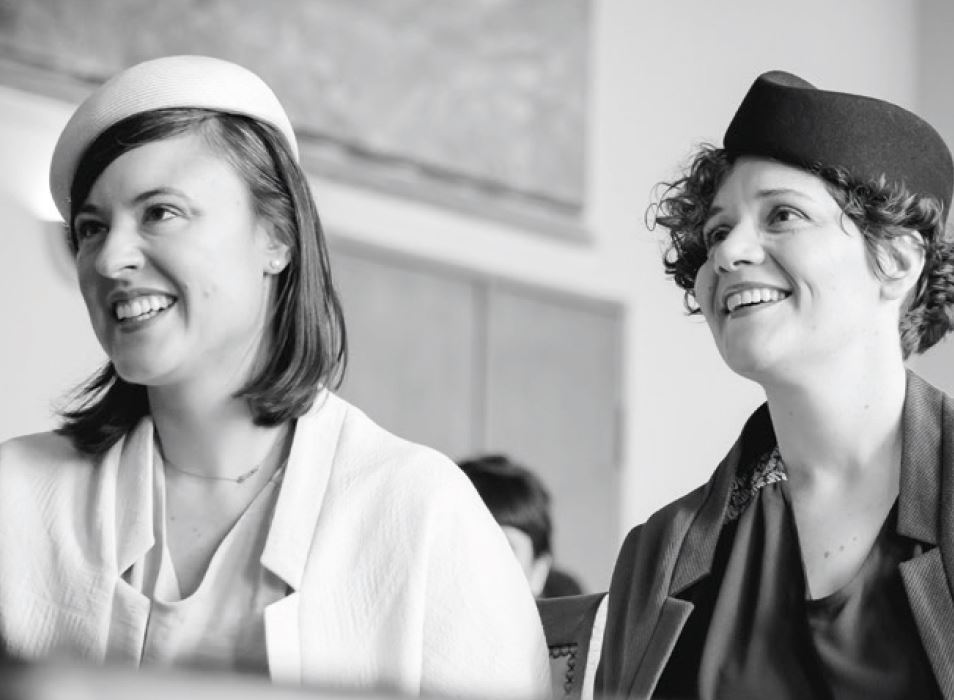
Natalie:
I think after a few years you stop using your nations as a reference point as they become unnecessary and unhelpful – mostly just to do with which sauce should go with which pasta. Italians are quite sensitive about that! Plus it took Valeria a while to realise that I wasn’t being ‘unemotional’, that’s just being British. But she isn’t really a cliché Italian; she sometimes has a cappuccino after 11am. I’m proud to say I love Belgium, it’s my home. We might live somewhere else for a while but will probably always come back here.
Valeria:
To continue the food theme, it took me a while to figure out how I like my eggs in the morning, which apparently is a very important thing to know in a British household! I think you need to adapt to the other person’s way of life whether you have the same or different nationalities. Of course, certain stereotypes are true to a certain extent: we Italians are louder; our family gatherings are bigger and last much longer, and we think that no food beats ours. Brussels is home for us. We’ve bought an apartment; we’ve put down roots. Natalie just became Belgian!
Inka: Supply chain process and systems improvement leader, Finnish
Hans: Managing director of an energy trade association, Dutch/American
Together 20 years
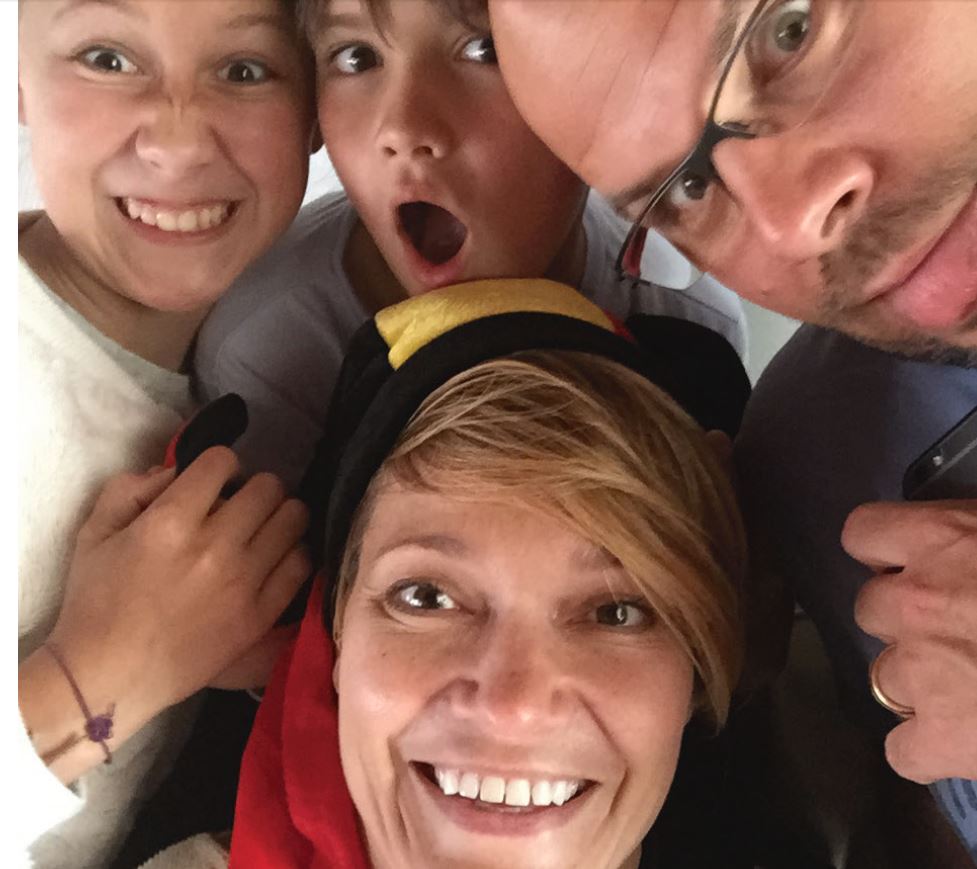
Inka:
We’ve been together over 20 years so we’ve created a way of life that works for us. Some cultural misunderstandings from the early years: my future mother-in-law’s surprise when my mother started to beat her with vihta – birch tree leaves, used by Finns to relax your muscles and to provide a good aroma in the sauna. Belgium has treated us well and works as a no man’s land for both of us. We’ve raised two Finnish-Dutch-American kids who speak the languages and feel Belgian in their hearts.
Hans:
We met in Brussels the day Princess Diana died, through a mutual friend. I went to help Inka and her sister move but arrived too late. So we went to McDonalds to get food for the people who actually helped! I quickly embraced both the Finnish sauna and drinking culture. Drinking beers in the nude with family and friends is totally normal now. After we bought our first home, the second thing we bought was a sauna. We have a very diverse mix of friends; we’re drawn to cultural diversity because we ourselves are a mixed bag of traditions and customs.
Wouter: R&D engineer, Dutch
Dominique: Key account manager, from France
Together 18 years
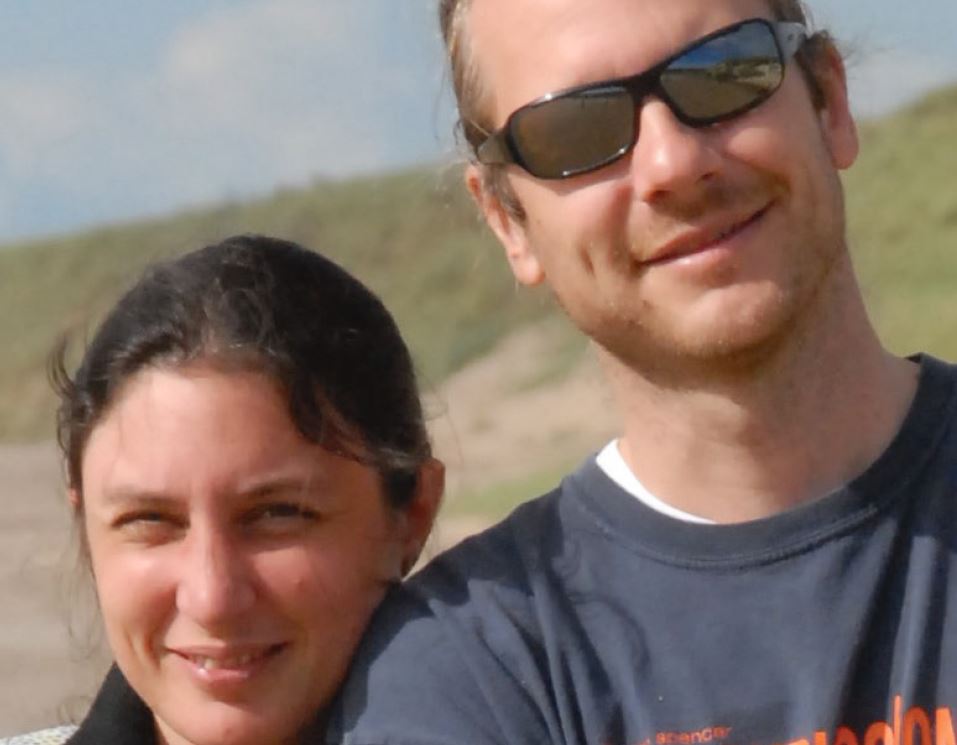
Wouter:
We met in Manchester in 1999 when we were both Erasmus students. We had loads of good times and enough anecdotes to last us a lifetime. The big advantage of this sort of relationship is the broadening of your horizon and the need to communicate in a different language. The downside? Trying to watch a French political discussion at the dinner table was only possible by imagining it as a film noir and making up the plot myself. This also explains the liveliness of a French party compared to a Dutch one!
Dominique:
One of the difficulties remains the language: although I can speak some Dutch and Wouter speaks good French, we communicate in English but miss the subtleties of the language. I respect the fact he doesn’t have a driving licence (which means I do all the holiday driving...), and I’ve got used to the boterham for lunch. And Wouter has made a lot of efforts to integrate with my family and friends and spend holidays in places that are a bit too hot for his Dutch blood!
Katariina: Teacher and writer, from Finland
Daniel: Theoretical particle physicist, from Mexico
Together 2 years

Katariina:
We met in Lisbon, and before coming to Belgium, Portugal was the coldest country Dan had lived in. I, on the other hand, am from Finland, so we’re polar opposites in the truest sense of the expression. The first time he saw snow was kind of cute because he was so amazed by things that were very normal to me, like how it can be cold and sunny at the same time! We recently started organising a language exchange in Liège to improve our French and make both English-speaking and local friends. That’s something we’ve really enjoyed doing together.
Daniel:
Experiencing things differently can also be a disadvantage. For Kata, Mexico is an exotic and fascinating place and she would love to live there, whereas for me it’s normal and I wouldn’t want to go back. Kata and I speak English with each other, and she’s learning Spanish. The main problem is that most of my friends are Latinos and even if they start out speaking English with Kata, after a few beers everyone goes back to speaking Spanish! What we do next depends on my job, but I think we’d both like to end up in a place with warmer weather and less rain.
Qing: Interpreter and translator, from China
Niko: Gardener, from Belgium
Together 10 years
Qing:
We met in a small town in Germany on New Year’s Eve 2006. Our conflicts never come down to culture but ultimately individual things, depending on our worldviews based on different experiences or upbringing. One difficulty might be that Nico is not able to communicate with my family since he doesn’t speak Mandarin. We have no plans to move out of Ghent yet. I love this city, after so many years here. I’m not sure if I could still fit in in a society with more complicated guanxi [relationships], both from a business perspective and a social and family perspective.
Nico:
My partner’s multilingual so when you travel to countries like China, you have someone next to you who speaks the language. I don’t see any difficulties with being in a mixed couple, it has nothing to do with nationalities. Religion could be an issue, if the two of you practise different religions. But we’re both atheists, so that doesn’t really play a role in our relationship. Speaking of adapting to each other’s way of life, maybe now I eat more rice than I used to?
This article first appeared in The Bulletin autumn 2017. Photo: Herwig Vergult/Belga









